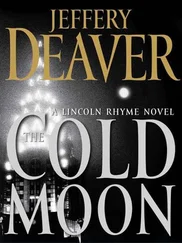“Pretty.” I correct myself. “Once.”
He leans closer to her, as if trying to see for himself. He shrugs.
Her body—pale, deflated, now a mere used vessel—is nevertheless taut and supple. Nights dancing, and in the small hours, spreading those long legs and with them, languorous joy. A good-looking grad student. What a waste.
“Pharmacology? Sounds ambitious and practical.”
Grimmenkauf smiles grimly, briefly.
“What?”
He wipes the smile away, still looking at her. “Anna was a prostitute.”
I look at him questioningly. He shrugs again. “On this side, it’s a way of life. To get cigarettes, booze. To save some money. To barter for a little joy.” Then his steely blue eyes go hard again, professional. “We know the prostitutes. We know the trade, the traffic. That’s our research. Our database.” And he taps his head.
He is teasing me, of course. On our side, it’s computers, national databases, interagency cooperation, orderly electronic files. On this side, it’s a more traditional method of information storage.
I ask the obvious. “So where are you on her johns? Any regulars?”
“One in particular. American military boyfriend. With all the access, plus goodies and treats to bring her. That’s why she was with him.” The Allies moved relatively freely between East and West, papers issued by embassies a required but quick and painless formality. They are the kings; the chosen; the Americans.
I’m already getting the sense—the instinct. This could turn out to be very easy—and very hard.
“And what do we know about the boyfriend?”
“Corporal Chad Miller. Chicago, USA. Good looking.” Adding, after a pause, so the thought can stand on its own, “Entrepreneurial.”
“Meaning…?”
“You name it… he traded it. We know of Chad. A very industrious young man. An American love of commerce,” he says with a smirk.
It’s clear that I can ask a former Stasi directly, cop to cop; no intervening nicety or formality required. “Was it him?”
“Oh, it was him.” He points to his belly, still impressively tight, disciplined, from what I can see. “I know it here.” And then to his head. “But not yet here.”
Grimmenkauf’s initial “fieldwork,” let’s call it, has already informed him how Ms. Hoppler’s pharmacology studies put her exactly where she needed to be. In the hospital supply rooms. At the medical lockers. Access—and privacy. “So they each were bringing something to the dance. On his side, he was dealing the drugs. Selling to other soldier dealers in Western Europe. Trading them for drugs and other products that he would bring to the East German side. Making money in both directions.” He looks at me mournfully, his face hanging. “And we’ll never get him for it, and he knows it.”
“Why not?” I’m already building the case in my mind. “Relationship to the victim. Establish movement on the night of the crime. Trace the money trail. Testimony from recipients of stolen goods in exchange for avoiding prosecution…” Seems straightforward enough.
He shakes his head, starts to explain. And I quickly come to understand that Chad is not only one enterprising bastard. He is lucky beyond belief. And lucky, perhaps, beyond justice.
In the East German judicial system, a murder case comes before a panel of three administrative judges—no jury of one’s peers, nothing so egalitarian. They are appointed by the state, and in the pocket of the Communist Party—career Party stooges—who normally would convict on the flimsiest of circumstantial evidence. It was a systematized corruption that would make an African warlord blush. Mock trials—invented here.
But now, according to Grimmenkauf, with the prospect of a real system of law being established in short order, all these corrupt East German judges were suddenly facing lawsuits against them from countless unjustly convicted defendants. West German lawyers had filed cases already, literally thousands, in the past forty-eight hours. And these judges would now be looking to demonstrate an understanding of such subtle and previously unexercised concepts as due process and reasonable doubt in order to curry favor with their new West German colleagues who would soon be sitting in judgment of them, and especially with the Americans—who would have significant influence in the new judicial policies of a united Germany. These corrupt career jurists were angling to avoid prison themselves. They could see the handwriting on the Berlin Wall—and they would do what they could to hastily rewrite it.
Grimmenkauf smiled, explaining the irony. How previously it would delight them to convict an American serviceman dealing contraband on the Eastern Bloc side. (Would the American military intervene? If so, it would appear as if they were trying to manipulate the system.) But now, these judges would only convict if a case was utterly proven. The testimony of informants, the mere say-so of local cops, circumstantial evidence, would never cut it. There would need to be an unbroken chain of evidence, certainly including a murder weapon. In an environment of leniency, of liberation, of enlightenment, they would do everything to not appear as the force of darkness they had always been.
“These are political appointees, these judges, political creatures. All their lives, their verdicts have had nothing to do with evidence or justice, everything to do with politics. Now, they feel the political wind shifting, and they will shift with it—it’s all they know.”
Politics. Bringing the liberation of millions of East Germans. And one American corporal who doesn’t deserve it.
Justice—a blunt instrument, at best, behind the iron curtain.
And now apparently, no weight to the instrument at all.
One more aspect of the joke Grimmenkauf and I are inhabiting.
“This Corporal Miller. I assume I’m going to meet him shortly?”
“Our next stop,” smiles Grimmenkauf. “We can’t hold him. But the military has made him available to us…” he grunts, raises an eyebrow, “as a witness.”
The rest of the world hears about the Wall, sees the photos, the barbed wire, the sections made broader and thicker over the years, as if the Wall itself is growing into grim, gray adulthood, and the world knows the stories of those shot trying to cross, their bodies left to bleed out, for those on both sides to see. But in fact, it’s a sieve. How could it not be, with a border of over 100 kilometers between the countries; 43 kilometers in Berlin alone. Thousands have made it across successfully over the years. A remarkable brave few evading the guards above their heads (by glider and balloon), and many more under their feet, in the leaky maze of the subway tunnels—those subway lines that cross the border officially sealed off, but the network of repair tunnels still there. And in fact, in the years since the West Germans were allowed to cross in and out daily with the right paperwork, it became of course even tougher to police.
Hence, Corporal Miller.
He is in uniform camos. Black wavy hair grown out a little, as the U.S. military now allows. He has a smiling, cheerful, upbeat way, practically a spoof of the guileless American character. There is also a U.S. military advocate in the interview room, which the U.S. military always provides. In fact I know him, Captain Laughton, and I know the type, from dealing with soldiers stationed in West Germany who get themselves into some bit of trouble over the years. I can see that Grimmenkauf is a little surprised and annoyed by this bit of procedure. I’ve seen the soldiers inevitably get off with a slap of the wrist, with good relations maintained and unjeopardized between Western powers. Not always, but generally.
“Corporal Miller, I’m Inspector Bunder of the Berlin police department,” I tell him. Grimmenkauf has decided to listen from outside the interview room, muttering to me that his anonymity might be useful later. “We have a few questions for you.”
Читать дальше












